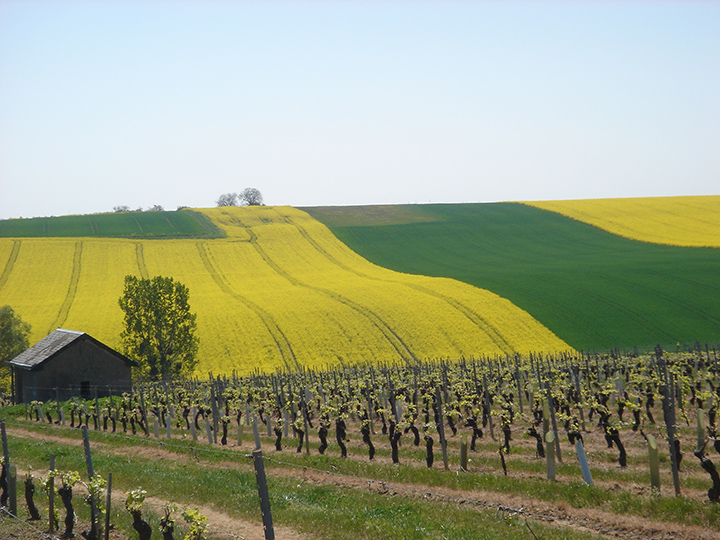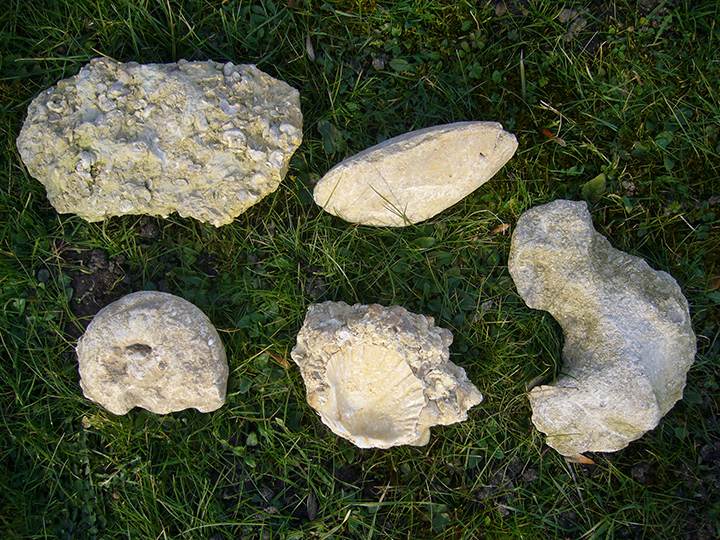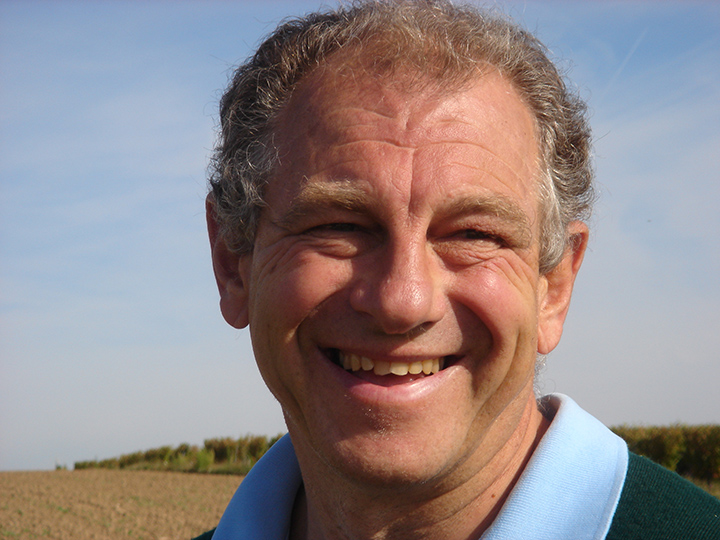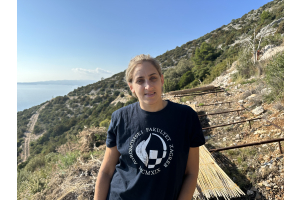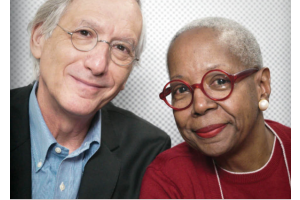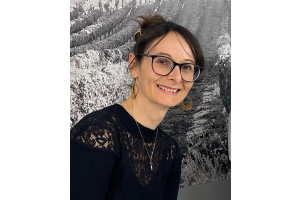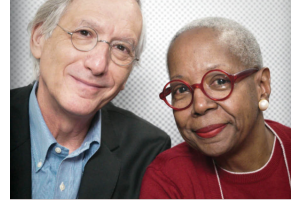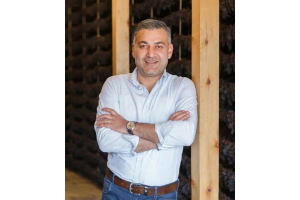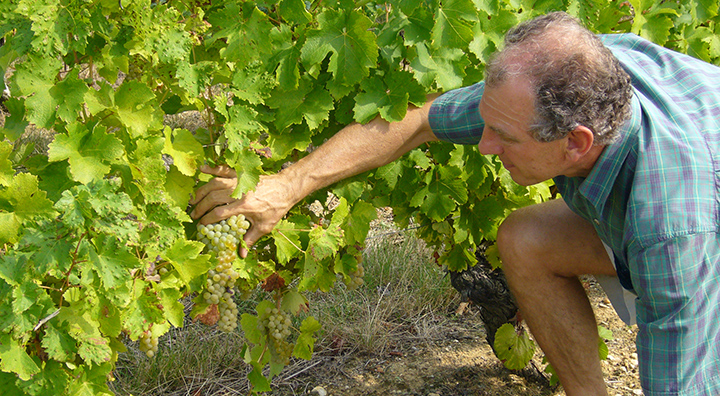
Denis Jamain's maternal grandfather Camille Rousseau started the family estate in 1935 with two hectares of vines. In 1990, Denis began adding to the family holdings. Today, he farms a total of 17 hectares (about 10% of the total appellation) in the heart of the appellation, with eleven planted to Sauvignon Blanc, four planted to Pinot Noir, and two planted with Pinot Gris, which makes his superb and distinctive Reuilly rosé.
The soils here are rich, resting on Kimmeridgian limestone, a geological chain that connects the Loire Valley with Chablis in Burgundy. This limestone is valued for its high content of marine and shell fossils dating back 150 million years to the Jurassic period.
We talk to Denis about making wine in the shadow of Sancerre, going biodynamic, playing music to his vines and making his own barrels.
Christopher: Denis tell us about your estate, Domaine de Reuilly.
Denis Jamain: I'm coming from the appellation of Reuilly, an appellation which is located 40 miles southwest of Sancerre, which covers 500 acres and most of it is in Sauvignon, but we also have two additional grape varieties which are Pinot Noir and Pinot Gris. Pinot Gris is very unique, because it's the only place in the Loire Valley where you'll have this great variety. So it's very specific to the appellation.
I'm lucky enough to own 50 acres of this appellation, 25 acres of Sauvignon.
Okay, so yes, Reuilly is a small appellation, I mean, size-wise. As I was mentioning, it is only 500 acres whereas appellations like Sancerre, for instance, are 7,000 acres. But you know, small can be very beautiful and I really like this appellation, because I think it has many many assets to it.
I always say it takes four things to make a great wine: first you need the plants, of course, and as I mentioned we have these Reuilly plants which are Sauvignon, Pinot Noir and Pinot Gris which is very specific to the appellation and which I think is a great asset.
It takes soil and the soil in Reuilly is outstanding. I have a piece of stone with me which comes directly from the appellation, and it's limestone soil with sea shells and fossils, and believe it or not but this is 150 million years old. This is from the Kimmeridgian area and is part of the middle-Jurassic period. When you have this type of soil, that's really so important for making a good wine.
The third thing is the climate and the elevation. The average elevation in Reuilly is 500 feet, and we are a little far from the mainstream of the Loire. We have basically no problems with the ripening of the grapes and we harvest usually ten days ahead of Sancerre, so this is very important. In some difficult years like 2014, ten days can make a lot of difference.
After that, obviously you have the grower's job itself and I am passionate about it. I've been growing organically for eight years now and biodynamically for four years, so when you have this type of soil you really want to get the most out of it. By growing organically and biodynamically, you push the roots down further and the roots are able to get all the minerals which are in the soil and then it gets into the plant and ultimately it gets to the wines. I've been working hard on that and I'm a true believer that this is the right way to do it.
Your estate is very near Sancerre, but not in Sancerre.
No.
Sancerre seems to get a premium in terms of the pricing that it gets in the market. Do you find that somewhat annoying, that you have this great terroir, that you're making amazing wines, but because you don't have the Sancerre brand you're not getting the same sort of pricing as the wines coming out of Sancerre?
Well yeah, to a certain extent I will say yes, but I mean obviously if I could sell my Reuilly at the price of Sancerre I'd be very happy. But it's a long process and at the same time we have to be thankful that Sancerre is that famous in the world because I don't think that our small appellations, we call them satellite appellations, would have great success if Sancerre didn't have this type of leadership.
But now, over the years I've noticed that more and more people are very happy to find these little appellations and that every year we're getting a better value for our products, and people have really started to recognize that they can have the same type of quality of wines, if not better sometimes, and at slightly cheaper prices. That makes it very interesting in the market.
What are the differences between Reuilly and Sancerre in terms of the characteristics of the soil and the climate?
Well, I'll start with the soil. In Reuilly we have this Kimmeridgian soil that I've mentioned previously, and this is more like the soil of Chablis actually than the soil of Sancerre.
Sancerre is more widespread so you have different categories of soil, depending where you are, so it's not as homogeneous as it is in Reuilly.
As far as the climate, the elevation of Sancerre is like 1,000 feet average. Reuilly is only 500 as I mentioned and also, Sancerre is right under a main river and sometimes there is more moisture, more humidity, and they have more hail sometimes. For the average temperature, the yearly average is like four or five degrees Fahrenheit higher in Reuilly. It's good for the ripening of the grapes.
And how are the wines different?
The wines in Reuilly, for all these reasons I've mentioned, they tend to be a little bit rounder. I don't know if I'm saying that right, but sometimes with the Sancerre wines, and each vintage has it specificities, but sometimes their acidity is a little bit aggressive and basically you never have that in Reuilly.
You have a good balance of acidity and alcohol content, sugar.
And other than Sauvignon Blanc, what grows well there?
Well, the Pinot Gris and the Pinot Noir on top of the Sauvignon. The Pinot Gris and the Pinot Noir, each of them represent approximately 20% of the surface which is planted, and Sauvignon represents 60%.
As I said, the Pinot Gris is unique and this has become a real asset for Reuilly, and the Pinot Noir, when you look at each of the soil types, it's a great soil for the Pinot Noir and I personally enjoy very much the Pinot Noir produced in Reuilly. I think they have their own characteristics, they're elegant and a Pinot Noir should be elegant. At the same time they have a little bit more body than in some of these other appellations, like Menetou, and sometimes Sancerre. It's also nice to have these types of varietals.
Talk about the transition to organic and biodynamic, I mean organic is one step and biodynamic is really a much larger commitment, what made you take that decision?
It's been a long process, I've been doing that for 20 years and first I started with sustainable farming and I was happy with that, but then I realized that it was not enough, and I wanted to protect the soil as much as possible, to protect the environment, so I moved to organic farming. From there I decided to go one step further and go to biodynamic, and as you know biodynamic involves two different steps on top of the organic.
First, you are taking into account the position of the moon and the planets, so whatever the operation you have to perform in the vineyard you take into consideration whether you're on a root day, a flower day, a leaf day or a fruit day, so you have your calendar and according to the day you're in you will perform certain operations or not.
After that you have special preparations that you spray, they're like potions, like I'm preparing my own meadow stew. I don't hesitate to cut the nettles and prepare my stew and I dynamize this stew and I will spray it on special days. All this is for the good health of the soil and that's very important.
Did you notice the big change in the soil since you started using biodynamic methods?
I do, it's a long process but I think that each additional year brings a little bit more and I'm very happy with the trend I'm seeing right now. I see that the vines are just healthier, and they're happy to live.
How long have you been making wine?
Personally I've been making wine for 25 years, but the estate has been in the family for three generations. It was started by my grandfather and well, I've been developing it in the last 25 years. I've also been focusing a lot on the export market, and I've started to work with Kermit Lynch over more than 15 years ago. I have really enjoyed working and developing this partnership with Kermit and it's been a great, great adventure for me.
I never expected that we would do so well and it's been really fruitful and for instance, 50% of my Pinot Gris production now overall is sold through Kermit.
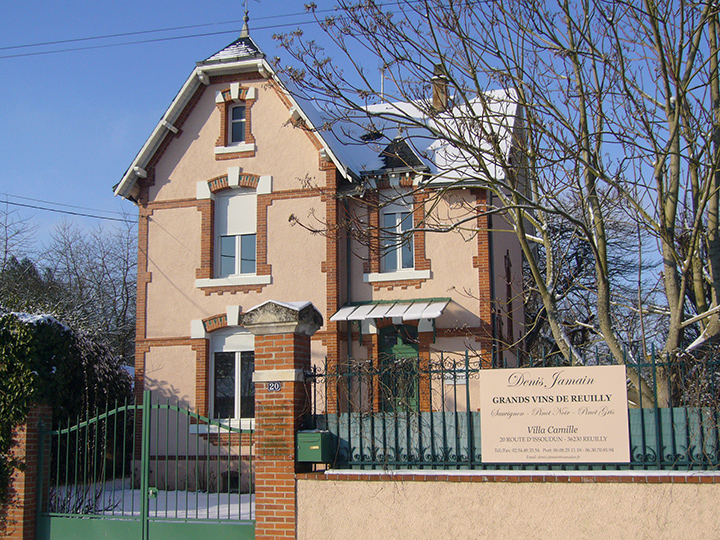
Wow. So, 15 years ago people like the importers weren't the stars that they are today. I mean, now people will turn the bottle around and they'll see Kermit's name and it's like "Oh, it's a Kermit wine" it's sort of like that label of approval, that it's been vetted and you can trust it.
How did you get involved with Kermit?
As I said, it started about 15 or 16 years ago. I was participating on one of the main shows, the show in Angers, it's called Loire Valley Wine Show and it takes place in February.
Actually, someone came from Kermit, came on my stand, tasted the wines and liked them and two months later I started to do some business with Kermit. That's the way it started.
Since then it's really been a long course of actions and personally, I'm coming at least twice if not three times per year. I'm spending five weeks average in the States and supporting the market. I grow in the field, my wines are distributed in approximately 30 states of your country. I can really say it's been a true faithful partnership, and I think we've been doing a great job together.
And how much of your total production goes through Kermit?
Between 20% and 25%.
And what's the next biggest market for you?
My biggest markets are European markets. I mean I'm not counting France, obviously, but Germany, UK, and Sweden are good markets. Japan as well is starting to be a good market. The Netherlands and Switzerland as well.
Apart from changing to organic and biodynamic, have there been other changes that you've undertaken in your winemaking?
Well, I'm always searching, I'm always trying to implement new things. Lately I've been playing music in the vineyard.
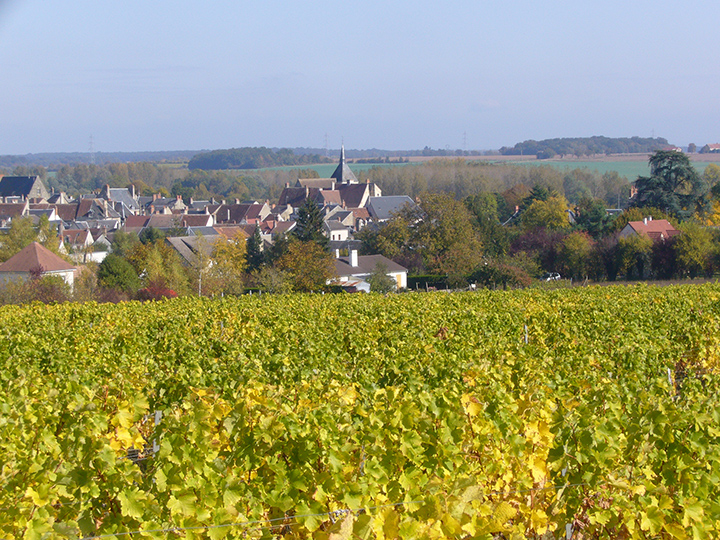
You know, there's a producer in Montalcino, they got the Bose corporation to donate 80 speakers and he plays Mozart to his vines and he's convinced that it has a beneficial impact on the growing.
Well, I'm a believer of that. Playing music has an impact on the cattle, like cows, for the milk and everything. I mean, the plant has a life and I believe that music has some importance. And the frequency of the sounds has an impact on the proteins of the plant, amino acids? I don't know how you call this.
What sort of music do you play?
It's frequency of sounds, it's related to quantum physics, actually.
Is it just sounds, or do you play a certain composer?
It's sequences of sounds which have been put together and I have speakers in the vineyard that I play. I've been doing it during the vegetation season, from May to the end of September.
That's fascinating. They were also doing it in South Africa with DeMorgenzon, they're playing music to their vines down there as well, so it's interesting that you have these producers in completely disparate areas who have all come across this idea.
Yes.
You know, I'm always searching for excellence, so I'm always trying to implement new things, and with the winemaking process as well, it's a constant search. And our vintages are different, there is no vintage which is exactly the same as another. You have to adjust permanently, when you search for the best solutions for this vintage and to try to get the most out of it.
Is there a sort of struggle between looking for and finding new things but at the same time maintaining your tradition?
Well sure, first of all I'm not trying to expand the vineyard like crazy. I am planting a little bit every year, but I mean, I'm searching more for quality and excellence than trying to have a larger production of wine. That's not my ultimate goal and for sure, keeping the traditions is very important. You have to make the right balance between keeping these traditions and innovating at the same time.
Going back to working with Kermit, as that relationship has developed over time, has he had input in the wines?
Well, I see the Kermit people several times during the year. They come to visit the vineyard twice a year at least, and as I said I'm coming to the States often so I have permanent meetings and talks with them. They also they have an office in France with several people so they're very close to the producers and they're very respectful of the producers.
A very good thing too is that whenever I travel in the US I am in touch with all the French growers and during these trips you always learn about things.
When I was growing organically, and was not biodynamic yet, I had the opportunity to meet other French growers who had already gone through that, and it was very fruitful for me to be able to talk to them, and implement some of the things they had been trying. I have great respect for all the producers they work with.
You make a Pinot Gris rosé, how did you come up with that? How long have you been making that?
I've been making that for the last 20 years, the Pinot Gris rosé, It existed in Reuilly a long time ago, it got the appellation certification in 1961. It had been grown before in Reuilly, but the thing is that for many, many years it was just consumed locally, it was not even marketed in France. It was a very small amount, a very small production, and suddenly in the last ten years I would say that people realized that it was a great product and they started to love that product.
There is a big trend now for this type of wine in France, the rosé has become something very big and I know it's big, it's becoming big in your country as well.
Everybody loves rosé in the summer.
Yes, yes! Definitely. And this Pinot Gris, you can--I always call it a Pinot Gris more than a rosé, because by doing so you can enjoy it all year long, not only in the spring and summer.
Do you have influences as a winemaker, are there other winemakers either in France or other countries that you've looked to gain knowledge?
Well, in Reuilly we're only 35 growers and I am the only one to grow organically and biodynamically, so obviously I try to spend time and learn from other growers. I have very good relationships with some growers in Bordeaux, in Alsace, in Pic St. Loup, and so it's very good to talk and exchange thoughts about everything: agriculture, winemaking, everything, you know.
I could learn for decades about wine, but I think that what is most important is to be passionate about it, because obviously if you're not passionate, you'll never be able to produce great wines.
So Denis, you make your own barrels, that's pretty interesting.
It's not that I make my own barrels, but we're lucky enough in the family to have a forest, a beautiful oak tree forest, which is ten miles away from the vineyard. And this part of France is really famous for barrel-making, so I decided 15 years ago to use the trees of the family forest to make my own barrels, as you say.
I'm doing that with a cooper and we are selecting the trees. The trees are 200 years old and are like 30 inches in diameter and the grain is a really fine grain. It's very adequate for aging of the reds and the whites, I have a cuvee in the white as well.
The label says les chênes de mon grand-père, which means the oak trees of my grandfather, so I saved with the cooper, I saved the trees and we cut. After that they dried up for three years, and I made barrels out of them. I aged my Pinot Noir and Cuvee Sauvignon in these barrels, and it's a great, great satisfaction to be able to that.
So that really is the ultimate expression of terroir, right? You have the barrels, everything is there.
Yes! Definitely so.
